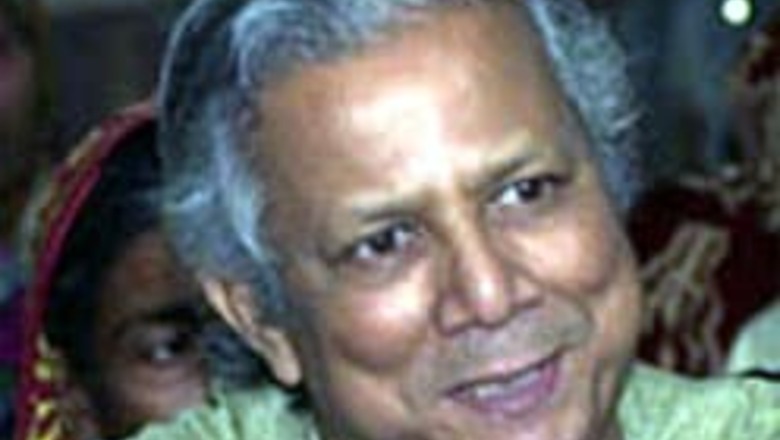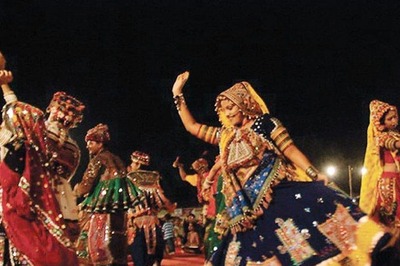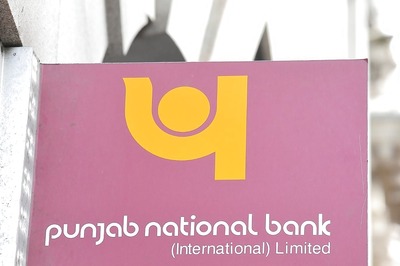
views
New Delhi: He believed in eradicating poverty in the world and he showed the world how to do it.
The world at first scoffed at his utopianism, but finally began to take him seriously when the results spoke for themselves.
Sixty-six-year old Professor Muhammad Yunus was awarded the Nobel Peace Prize on October 13, 2006 for his efforts to create economic and social development from below.
In 1974, Prof Yunus, who was then the head of the Rural Economics Programme at the University of Chittagong, decided to take his students on a field trip to rural Bangladesh where a famine had killed thousands of people.
The experience changed his life. Realising that small amounts of credit could revolutionise the fate of poor communities, he started by lending the equivalent of $27 to a group of female basket weavers to expand their businesses.
The idea was the seed for the Grameen Bank, which was formed in 1983 to extend banking facilities and improve the provision of credit to the rural poor.
The bank worked on the concept of microcredit - the extension of very small loans to poor entrepreneurs, especially those living below the poverty line.
Those who borrowed from his bank had no collateral, no steady source of employment or a verifiable credit history and thus could not meet the minimum qualifications for traditional credit from any bank.
Yunus' Grameen Bank changed all that and provided financial solutions to the very poor. Typical borrowers from the bank were destitute Bangladeshi women, who had never before seen money in their lives, but needed to work to support a family - usually a large one.
The money lent - sometimes as low A 320 (Bangladeshi currency) - would help these people buy assets such as a cow that gives milk, sewing machines etc, which would reap immediate results. The loan would then be repayed in tiny weekly installments.
Yunus worked on the premise that no one needs to teach the poor how to survive - the very fact that they are alive means that they know how to survive.
After nearly two decades of working in complete annonymity, Yunus' scheme caught the world's fancy and began winning admirers among world policy-makers.
Among those who converted to his style of thinking were former US president Bill Clinton, who urged the Nobel Prize committee to award him the peace prize for his efforts to alleviate poverty and cited his experiment in Bangladesh as a model for rebuilding the inner cities of America.
Since then, the World Bank has made him the head of its advisory committee to propagate his vision worldwide.
He says that the main influence in his life was his mother, who would help anyone who would appraoch her. He thanks her for making him realise that he had a mission in life.
Yunus' mission has finally reached a point of worldwide recognition with the Nobel Peace Prize going jointly to him and the Grameen Bank.




















Comments
0 comment